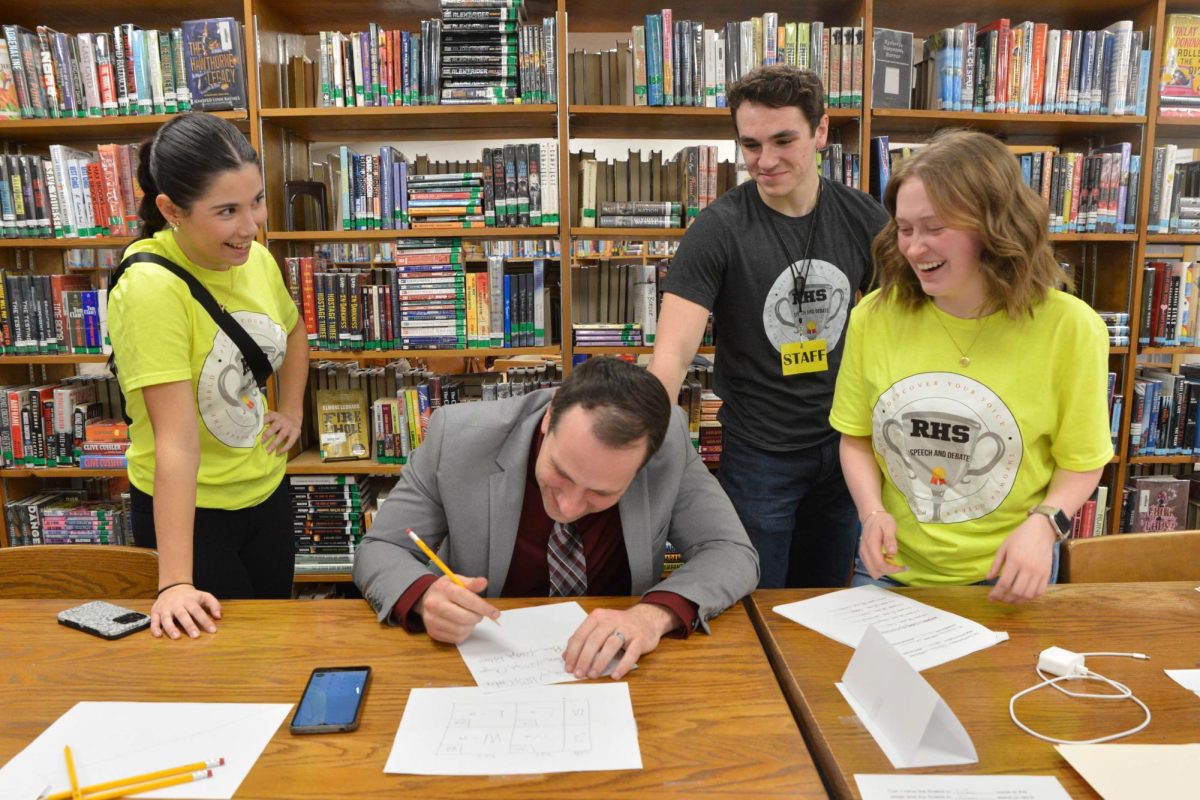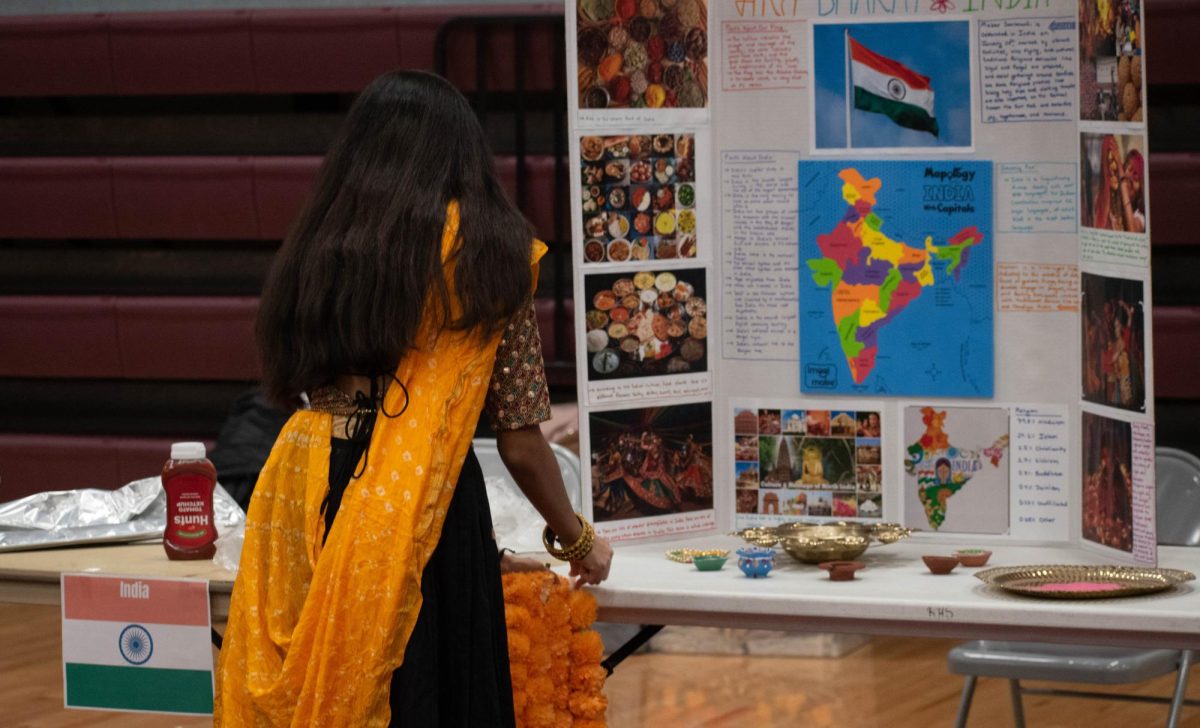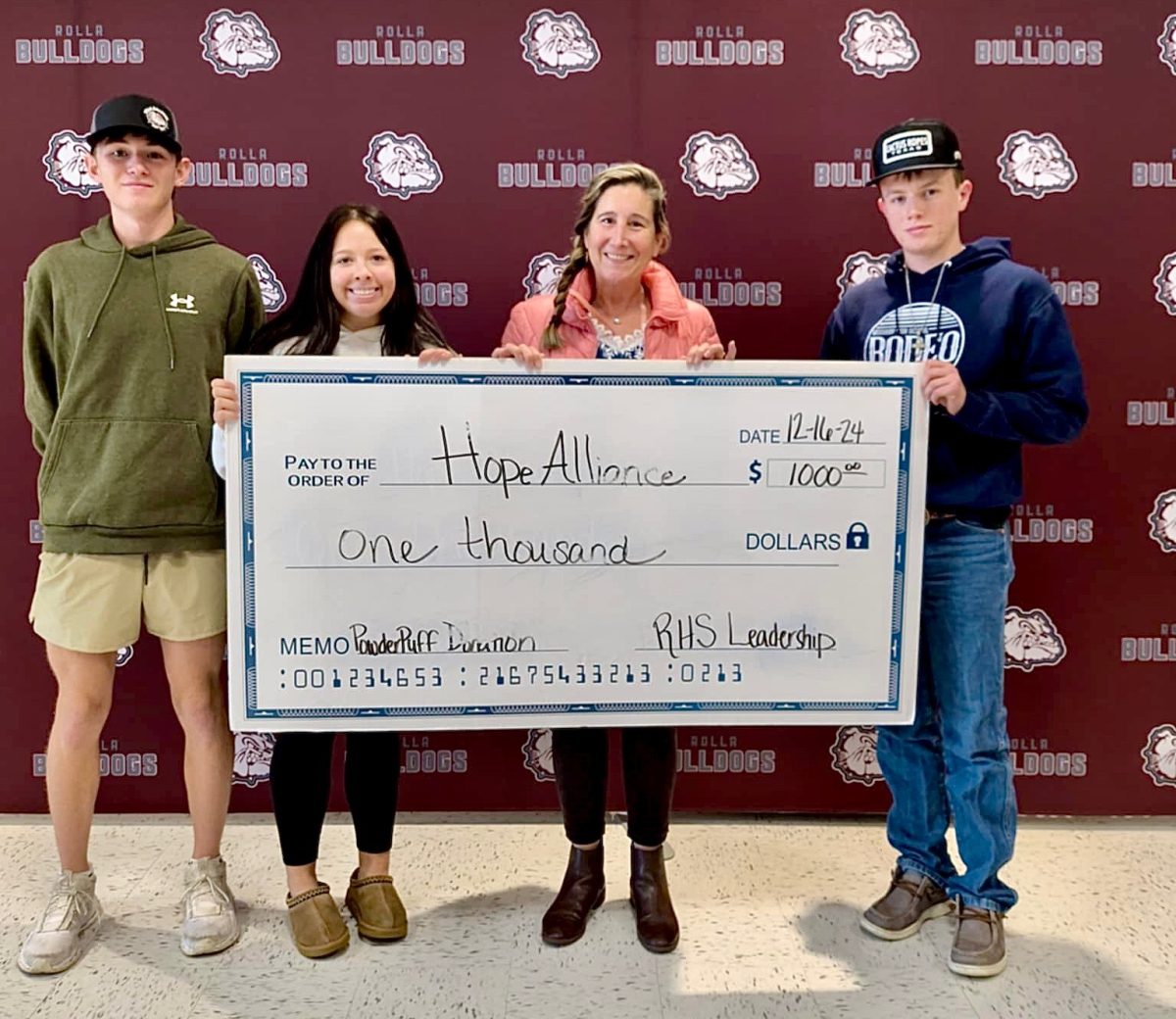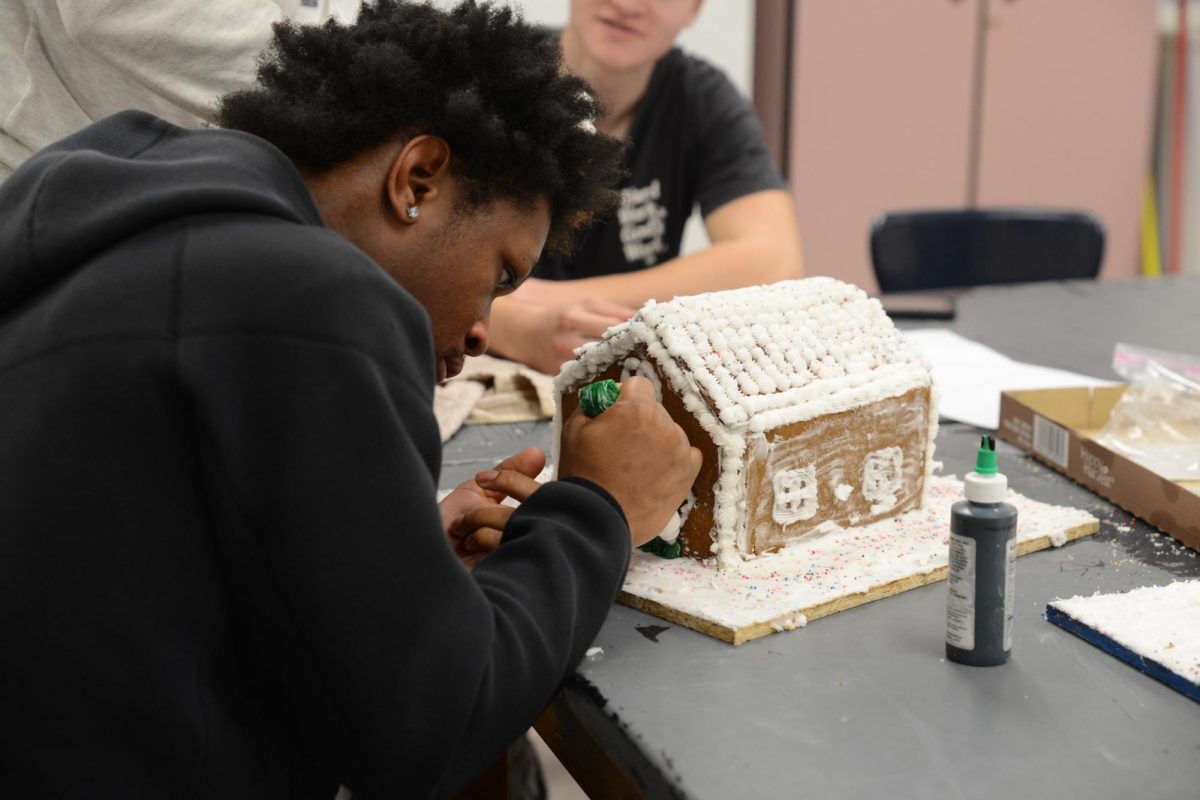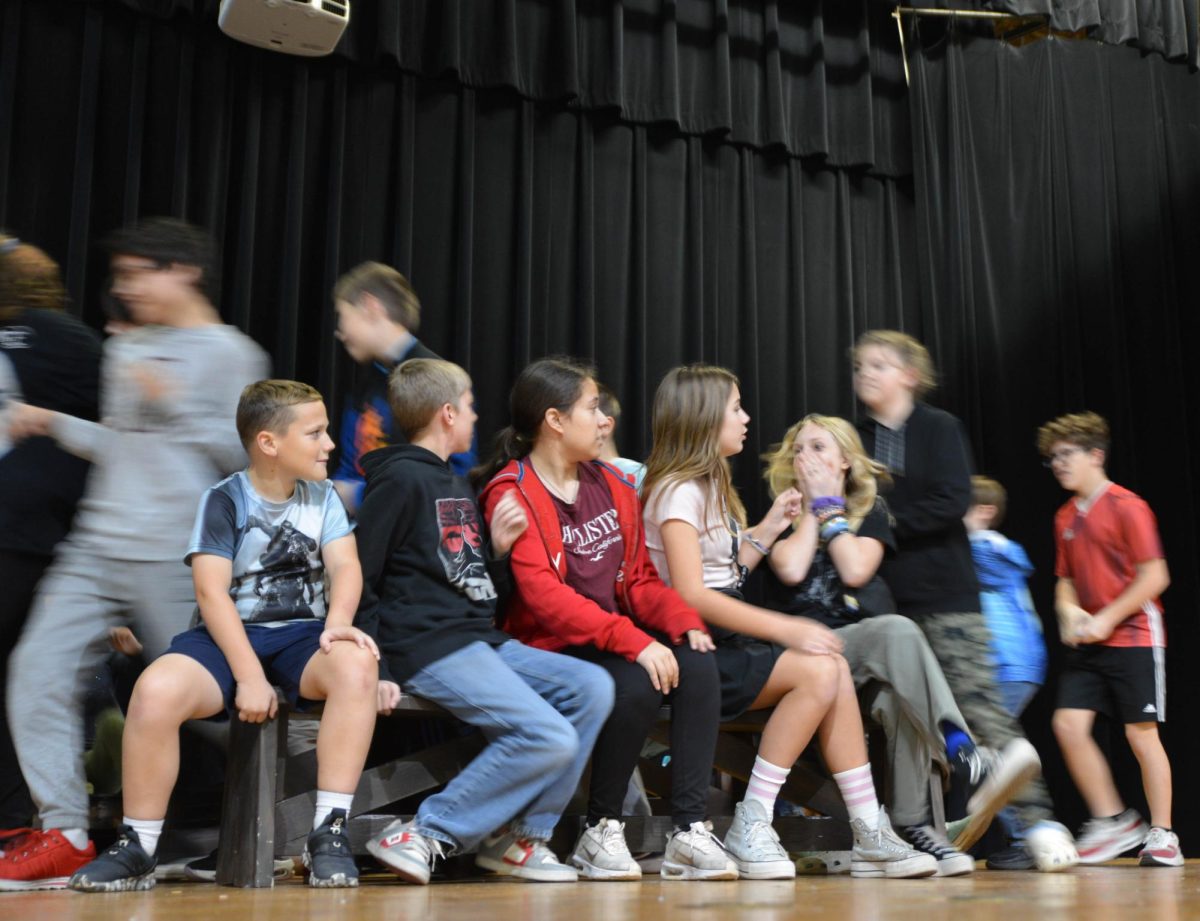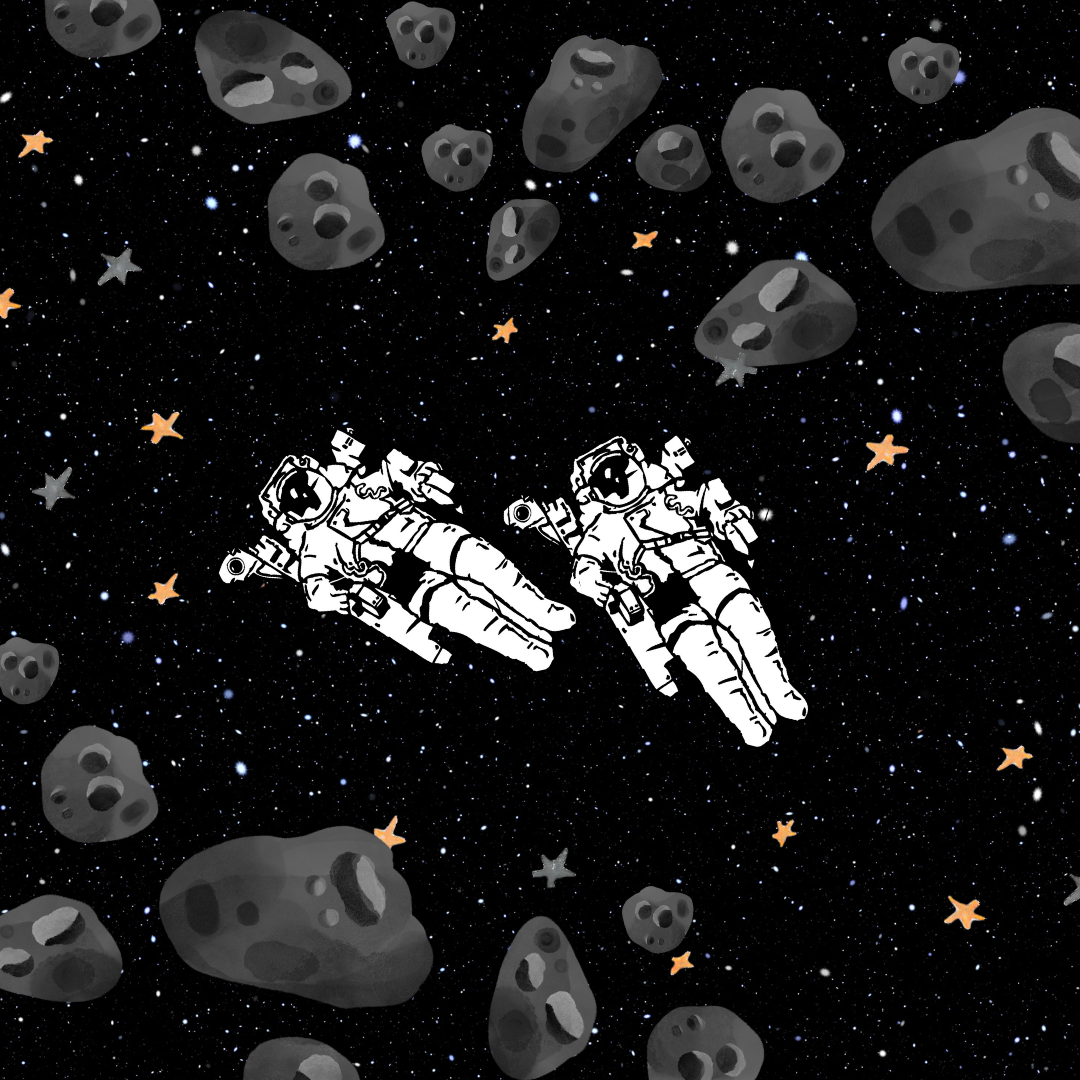It began on Wall Street in New York and subsequently spread across the nation, from populated coast cities to small towns in the Midwest. The Occupy movement consists of an extensive range of complaints, demands, and goals from the American protestors: government corruption, World Bank lending practices, unemployment, and the increasing inequality in wealth dispersion. Different people have been affected by different aspects of the same system, but it all comes back to one thing – from the protestors on Wall Street to those protesting in our very town, people are unhappy.
On November 5, a number of local citizens joined together to voice their concerns and opinions at Occupy Rolla. Local family doctor Emily Masterson, carrying a graph displaying the presence of income disparity in the American economic system, discussed her own discontent.
“I’m merely a concerned citizen, and I’m here to reclaim our democracy from corporate interest. The orgy of corruption and greed that has been going on in corporate America and in our political system needs to stop. We need to be reminded that this democracy is really in the hands of the people, not in the hands of large corporations. I think it’s really important that we, as a society, recognize our role in this democracy. If we don’t stand up and take me what’s ours, somebody else is going to step in and take it from us,” Masterson said.
Masterson’s graph displayed how the top one percent has had a huge growth in their income while the remaining ninety-nine percent of our country has stagnated relative to that – this is only one of the problems which has acted as a major catalyst for the nation-wide Occupy movements.
“This gets us to think about why this is happening, and to ask if it is good for our society, and ask why this is happening to our middle class – and what happens when you squeeze out the middle class. I would propose that this is very bad for our society, even if you’re in the one percent, because everybody else around you doesn’t have health care, doesn’t have child care, doesn’t have a job. What kind of a society is that? We’re all interrelated, so if your neighbor is starving and suffering, aren’t you starving and suffering? I’m not anti-Capitalism, I’m not against wealthy people – I make a very good income myself. I’m not here because I don’t have a job, or because I don’t have money. I’m here because I don’t think this is good for our society. I think the corporate interests are running our society and our government, instead of what’s in the best interest of the vast majority of the people,” Masterson said.
A strong opinion at the Occupy movement was the importance of small towns, such as Rolla, on an even larger scale.
“Small towns really are the heart of the country – there are millions of people just like the people of Rolla all over the country who make up such a major proportion. The people in small towns make a difference, and they can make just as much difference as the people in the city movements,” Salem local Katy Brown said.
Matt Mick, one of the main instigators of the local movement, also believes in the significance of the Midwest.
“The important thing about Occupy Rolla, and what got me motivated personally, was to show that even in the Midwest, in small-town Midwest, we care about what is going on. A lot of America revolves around the East Coast or the West Coast, and then there’s about eighty-five percent of the land mass that doesn’t seem to matter, and we want to say, ‘Hey, we do matter, we do have an opinion and we want to get involved.’ Today, we had maybe twenty-eight people. It’s not that many people, but at the same time, it’s still something – there are still people out there. It may be small, but it’s got to start somewhere. We’re a small town —we’re not going to have hundreds of thou sands of people. But it does show that it really is spreading across the country,” Mick said.
Though small towns are important, Masterson fears that unless they become aware of their situation, they can do nothing about it.
“I think rural America is suffering more than other areas because our manufacturing jobs have been sent overseas. People here are struggling, and sometimes I wonder if people in rural America really realize that these larger interests are running the government, and their voices are left silent,” Masterson said.
There have been complaints from banks and media outlets about the disorganization of the Occupy Movement.
“One of the biggest complaints about the movements is that they don’t seem to know what they’re doing – that’s one of the good things and one of the bad things of it right now – there is no set organization, there is no set agenda. I’ve had a lot of people ask me ‘Where are the solutions? There is a lot of complaining but not a lot of solutions.’ The thing is, that’s part of it. There’s literally tens of thousands of people across America that are doing some sort of Occupy, not necessarily in Zuccotti Park, not necessarily in Oakland [California], but they’re supporting it in some way – through demonstrations and other stuff like that. Say there are ten thousand people, well then there are ten thousand solutions,” Mick said.
The idea of Occupy Rolla was to create a local movement and to display the need for America to return democracy to the way it was intended.
“It’s about getting people interested in their democracy again. This is our democracy. This isn’t a democracy run by corporations. At the moment, it feels like that. We need to take it back – we need to stand up and say ‘No, this isn’t right. I’m not going to bail you out and then have you charge us five dollars to get our own money out of the bank. We’re not going to bail you out and have your CEO make however millions of dollars a year while working class people have no health insurance, can’t afford child care, can’t afford secondary education or maybe can’t even afford their mortgage or rent.’ It’s not fair for them to get rich off the backs of people who are working. I’m all for capitalism, I’m all for people having money, but the corruption and the greed, the dishonesty and immorality that’s going around is the problem. The fact that corporate money speaks louder than votes right now – that’s a problem, and that is not what this democracy about,” Masterson said.
But along with complaints, demands and cries of injustice, there also exists a hope for what these movements can mean for Rolla the nation, and the world the world – and all the people that exist within it.
“This group is really representative of what small towns are – it’s a lot of older people, and a lot of people from all walks of life. Here, I see all, kinds of people, and that’s really the beauty of it. People from everywhere – every religion, every political party – Democrats, Republicans, Socialists, Anarchists – everyone. We can all find common ground. Maybe it’s a left-leaning movement, but we’ve got everybody we’re not divided by political things, we’re just trying to survive. That’s something I really like about it. I just love that we are coming together as people – we can find common ground – we have a lot of things we disagree on, but people are coming together to try and make a better tomorrow – that, I believe, is the heart of the movement,” Brown said.



